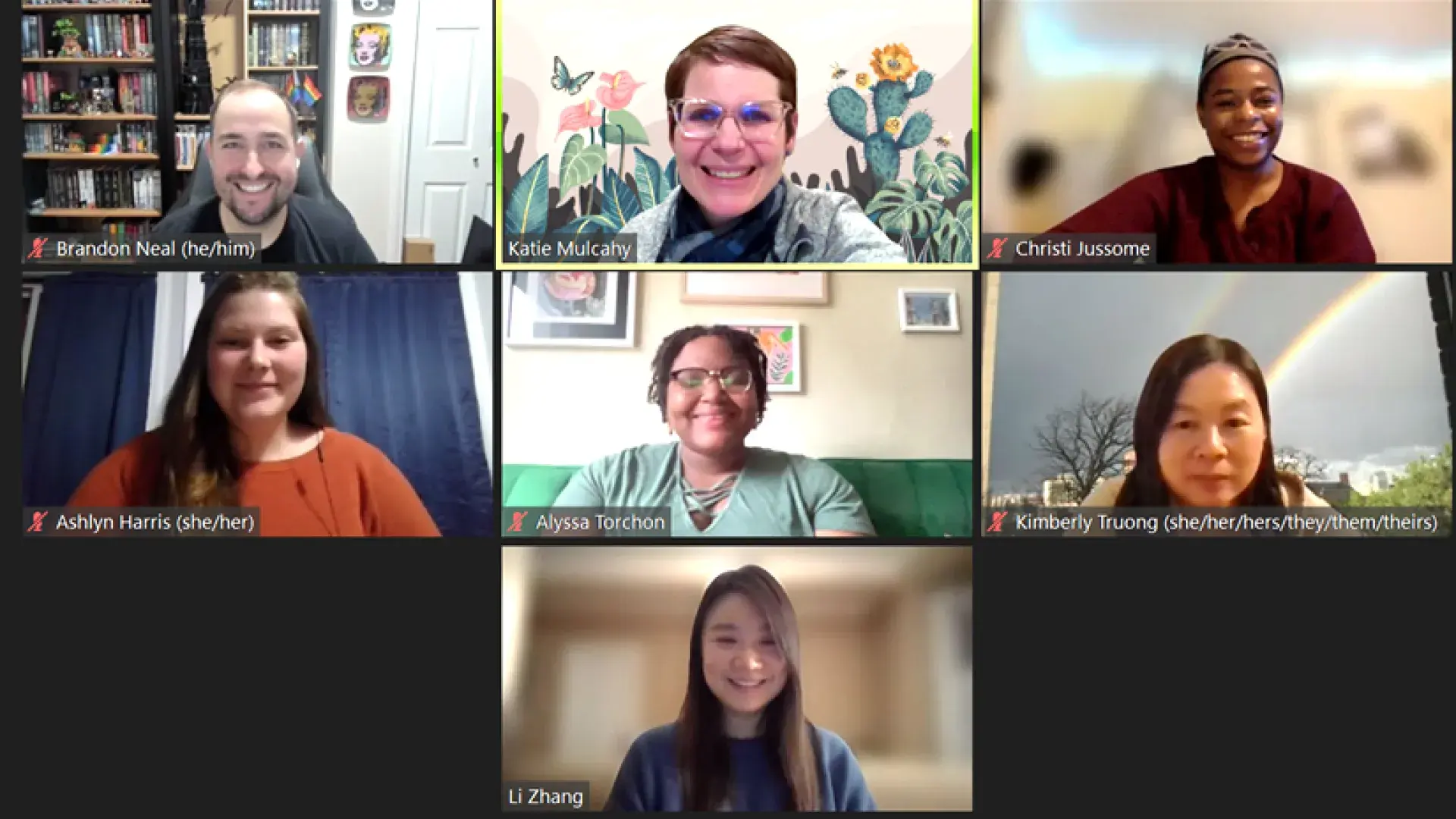
For the past several years, the MGH Institute has held the Power, Privilege, and Positionality (PPP) series that builds foundational knowledge (common languages: justice, equity, diversity, inclusion, power, privilege, positionality, racism, oppression, intersectionality) for all incoming IHP students and the broader IHP community.
A companion PPP series, organized by the Office of Justice, Equity, Diversity, and Inclusion (JEDI) and the Office of Alumni Relations, and modeled after a similar series that had been created for online pre-requisites instructors this past year, was created for alumni last fall to provide them with opportunities to continue their learning and have connections to the curriculum and conversations happening on campus today.
The series includes an asynchronous course, a debrief session on the course material, and the most recent online panel discussion.
The theme of the PPP series changes annually. The 2023-2024 theme was “Health at the Intersection of Race, Gender and Sexuality.”
Dozens of alumni attended the three sessions. The topic of the most recent discussion was “Considering the impact: Real life examples of health care at the intersection of race, gender, and sexuality,” which was also attended by students, staff, and faculty.
Alumni panelists were Brandon Neal, MS-NU ’23, Alyssa Torchon, MS-SLP ’21, and Li Zhang, MS-SLP ’21. They discussed several topics: the rise of healthcare disparities for individuals who self-identify as BIPOC and LGBTQIA+ and the current healthcare climate, personal experiences when accessing care and the ways that they felt supported and not during those interactions, their own challenges, immigrant/undocumented patients who aren’t specifically LGBTQIA+, and practical ways healthcare providers can create a more inclusive environment for individuals who self-identify as BIPOC and LGBTQIA+.
The panel was co-moderated by Doctor of Occupational Therapy students Christiana Jussome and Ashlyn Harris.
“Rich discussions between alumni, alumni and students, and alumni and faculty often occur during these experiences, which helps build community, deepen connections, and creates a shared experience,” said Alumni director Katie Mulcahy. “While alumni are no longer physically at the Institute, they are viewed as forever students. So, by providing alumni with experiences like PPP for alumni, we can support their efforts embody the Institute’s mission and commitment to equity and anti-oppressive practice in their personal and professional lives.”
Added Dr. Callie Watkins Liu, the Director of JEDI Education and Programs, “It is really exciting to have the opportunity to extend these conversations to IHP alumni and to collaborate with the alumni office. I look forward to developing more JEDI offerings for IHP alumni.”
